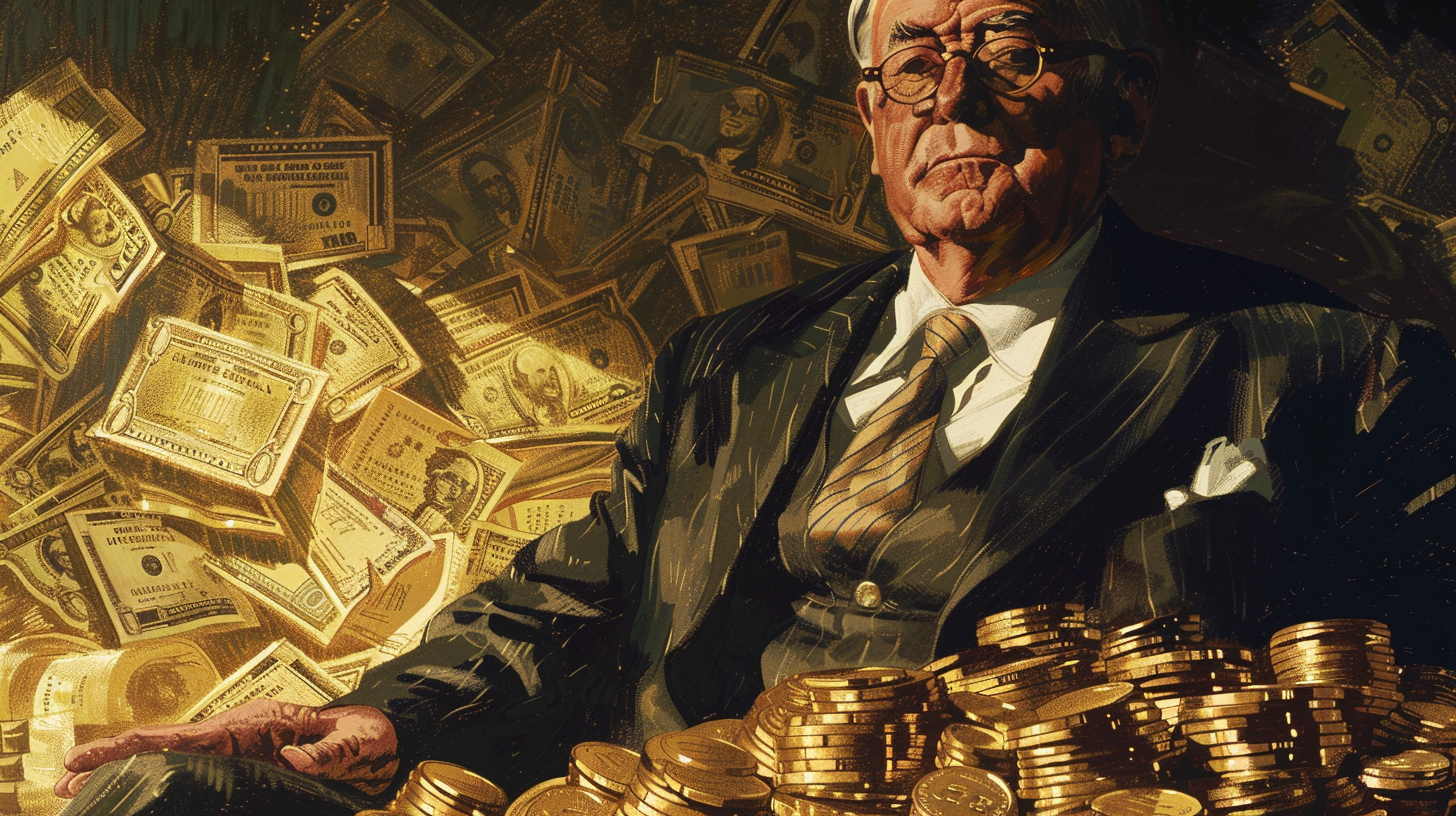Tennessee Will Explore the Possibility of a State Gold Depository
Last month, Tennessee Gov. Bill Lee signed a bill into law that creates a commission to study the feasibility of creating a gold bullion depository in the Volunteer State.
A state bullion depository would not only create a safe place to store precious metals; it would increase the state’s financial independence. It could also facilitate the everyday use of gold and silver in financial transactions in Tennessee and set the stage to undermine the Federal Reserve’s monopoly on money.
Sen. Paul Rose (R) sponsored Senate Bill 279 (SB279) and Rep. Bud Hulsey (R-Kingsport) carried the companion bill in the House — House Bill 353 (HB353). The new law requires the Tennessee advisory commission on intergovernmental relations (TACIR) to study the feasibility of creating a state gold depository, including whether other states or jurisdictions have created a gold depository, and to report its findings to the speakers of the senate and house of representatives no later than January 1, 2022.
The Tennessee Senate passed SB279 by a 32-0 vote. The House approved the measure 90-0. Gov. Lee signed the bill on May 27.
This takes a long-awaited second step toward creating a bullion depository in Tennessee. In, 2016 Gov. Bill Haslam signed HJR516, a resolution in support of creating a state gold bullion depository. Both houses of the legislature passed the measure unanimously. Passage of this new, five years later, finally takes a second step forward in the pursuit of sound money.
Tennessee could follow the lead of Texas.
In the summer of 2015, Gov. Greg Abbot signed a law creating a state gold bullion and precious metal depository. The depository received its first deposits in the summer of 2018. The following year, the state exempted precious metals in these depositories from taxation.
A state gold repository creates a path toward financial independence for a state. Countries around the world have been buying gold to limit their dependence on the US dollar. For instance, last spring Poland announced plans to add another 100 tons of gold to its reserves.
University of Houston political science professor Brandon Rottinghaus said a state depository could serve a similar function for Texas.
This is another in a long line of ways to make Texas more self-reliant and less tethered to the federal government. The financial impact is small but the political impact is telling, Many conservatives are interested in returning to the gold standard and circumvent the Federal reserve in whatever small way they can.”
In his signing statement, Abbot emphasized the autonomy the new facility could provide the state.
…the Texas Bullion Depository will become the first state-level facility of its kind in the nation, increasing the security and stability of our gold reserves and keeping taxpayer funds from leaving Texas to pay for fees to store gold in facilities outside our state.”
A state bullion depository also creates the potential for monetary competition by facilitating the use of gold and silver in everyday business transactions. This is a stated part of the plan for the Texas Bullion Depository.
In a nutshell, through the depository, Texans will be able to deposit gold or silver and pay other people through electronic means or checks. Private individuals and entities will be able to purchase goods and services using assets in the vault in the same way they use cash today. Doing so has the potential to open the market to sound money in day-to-day transactions. Ultimately, depositors will be able to use a bullion-funded debit card that seamlessly converts gold and silver to fiat currency in the background. This will enable them to make instant purchases wherever credit and debit cards are accepted.
By making gold and silver available for regular, daily transactions by the general public, the new depository has the potential for a wide-reaching effect. Professor William Greene is an expert on constitutional tender and said in a paper for the Mises Institute that when people in multiple states actually start using gold and silver instead of Federal Reserve Notes, it would effectively nullify the Federal Reserve and end the federal government’s monopoly on money.
Over time, as residents of the state use both Federal Reserve notes and silver and gold coins, the fact that the coins hold their value more than Federal Reserve notes do will lead to a ‘reverse Gresham’s Law’ effect, where good money (gold and silver coins) will drive out bad money (Federal Reserve notes).
“As this happens, a cascade of events can begin to occur, including the flow of real wealth toward the state’s treasury, an influx of banking business from outside of the state – as people in other states carry out their desire to bank with sound money – and an eventual outcry against the use of Federal Reserve notes for any transactions.”
Gresham’s Law holds that “bad money drives out good.” For example, when the U.S. government replaced silver quarters and dimes with coins made primarily of less valuable copper, the cheap coins drove the silver out of circulation. People hoarded the more valuable silver coins and spent the less valuable copper money. So, how do you reverse Gresham?
The key is in making it easier to use gold and silver in everyday transactions. The reason bad money drives out good is that governments put up barriers to using sound money in day-to-day life. That makes it more costly to spend gold and silver and incentivizes hoarding. When you remove barriers, you level the playing field and allow gold and silver to compete head-to-head with Federal Reserve notes. On an even playing field, gold and silver beat fiat money every time.





 As fiscal imbalances persist, driven by coercive measures and artificial currency creation, the middle class faces erosion and purchasing power dwindles. But as the world hurtles towards a potential reckoning, the lingering question remains: can this precarious balance last, or are we teetering on the brink of a cataclysmic economic shift?
As fiscal imbalances persist, driven by coercive measures and artificial currency creation, the middle class faces erosion and purchasing power dwindles. But as the world hurtles towards a potential reckoning, the lingering question remains: can this precarious balance last, or are we teetering on the brink of a cataclysmic economic shift? Since Nayib Bukele became president of El Salvador, El Salvador has been in American media and global political discussion more than ever. While much of the attention focuses on Bukele’s mass incarceration of gang members and a decline in homicide of over 70%, Bukele has also drawn attention to his favoritism towards Bitcoin and how he […]
Since Nayib Bukele became president of El Salvador, El Salvador has been in American media and global political discussion more than ever. While much of the attention focuses on Bukele’s mass incarceration of gang members and a decline in homicide of over 70%, Bukele has also drawn attention to his favoritism towards Bitcoin and how he […] Beneath the veneer of headline job gains, the American economy teeters on the brink: native employment dwindles as part-time and immigrant jobs surge. Government hiring camouflages looming recession warnings. Inflation and political blunders worsen the crisis, fueling public outrage at the establishment’s mishandling of the economy.
Beneath the veneer of headline job gains, the American economy teeters on the brink: native employment dwindles as part-time and immigrant jobs surge. Government hiring camouflages looming recession warnings. Inflation and political blunders worsen the crisis, fueling public outrage at the establishment’s mishandling of the economy. On April 5 1933, Franklin D. Roosevelt abandoned the gold standard, wielding questionable legal power amidst America’s dire economic depression. His whimsical approach to monetary policy, including coin flips and lucky numbers, unleashed unprecedented inflation and price increases that have since amounted to nearly 2500%. Our guest commentator explores this tragic history and the legacy […]
On April 5 1933, Franklin D. Roosevelt abandoned the gold standard, wielding questionable legal power amidst America’s dire economic depression. His whimsical approach to monetary policy, including coin flips and lucky numbers, unleashed unprecedented inflation and price increases that have since amounted to nearly 2500%. Our guest commentator explores this tragic history and the legacy […] With gold hitting yet another awe-inspiring all-time high in the wake of Powell’s remarks reassuring markets (more or less) to expect rate cuts in 2024, a few analysts are pointing out risk factors for a correction — so is there really still room to run?
With gold hitting yet another awe-inspiring all-time high in the wake of Powell’s remarks reassuring markets (more or less) to expect rate cuts in 2024, a few analysts are pointing out risk factors for a correction — so is there really still room to run?